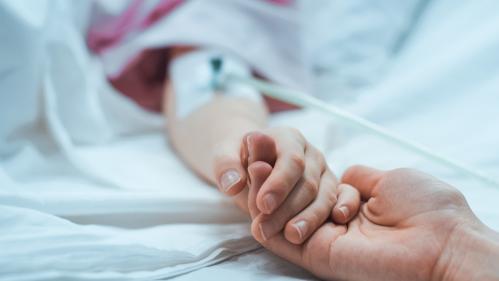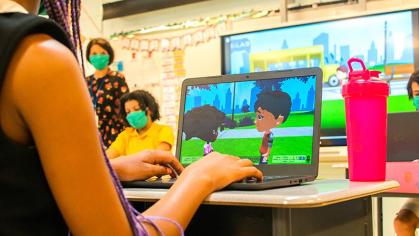Rutgers Research Results in First Life-Extending Treatment for Devastating Childhood Disease

Batten Disease – neuronal ceroid lipofuscinoses (NCLs) – is a group of rare and fatal neurogenerative genetic disorders in young children whose symptoms were untreatable until Robert Wood Johnson Medical School and the Rutgers Center for Advanced Biotechnology and Medicine researchers Peter Lobel and David Sleat discovered the disease’s genetic cause in 1997. Their groundbreaking discovery and partnership with the Office for Research (OfR) Technology Transfer team and biopharmaceutical company BioMarin led to Brineura, the first life-extending treatment for young patients.
The disease, named for British pediatrician Frederick Batten, who first described the condition in 1903, causes cellular waste materials to build up in the brain cells of children, some as young as two-years old. These young patients experience symptoms that range from vision loss, seizures, muscles spasm and rigidity, dementia, inability to walk or move, and a shortened lifespan. Most children with Batten Disease do not survive to their 12th birthday.
While antiepileptic drugs and several forms of therapy relieve some of the symptoms, no treatment extended a patient’s life until Lobel and Sleat’s research showed that patients were missing an enzyme called tripeptidyl peptidase1 (TPP1). Without TPP1, proteins, fats, and sugars build up in cells, resulting in widespread neuronal death, causing the devastating symptoms experienced by patients.
After their discovery, Lobel and Sleat partnered with the Rutgers Office for Research and BioMarin to develop Brineura a medication that delivers the missing enzyme through cranial injections. The medication was approved by the Food and Drug Administration (FDA) in 2017.
“It will be decades before we know if treated children will live normal lifespans, but current signs are positive,” said Lobel, who noted that Tay-Sachs and several other genetic conditions affect the same cellular waste-clearing function and might respond to similar treatments. “Disease progression appears to stop when treatment begins… It’s the sort of discovery everyone dreams of making.”
Lobel and Sleat worked with the OfR Technology Transfer team, which guides Rutgers innovators through the intellectual property protection and commercialization process of research and copyrighted materials, to negotiate an exclusive license with BioMarin, which resulted in clinical trials and the treatment being made available in the U.S. and Europe.
Brineura has not only improved the daily lives of patients and given hope to their families, but it has also provided vital support to researchers and innovators at Rutgers. In 2017, the proceeds from the BioMarin license were used to establish the TechAdvance® funding program, which offers grants of up to $100,000 to Rutgers faculty and students to help bring their promising innovations closer to commercialization.



